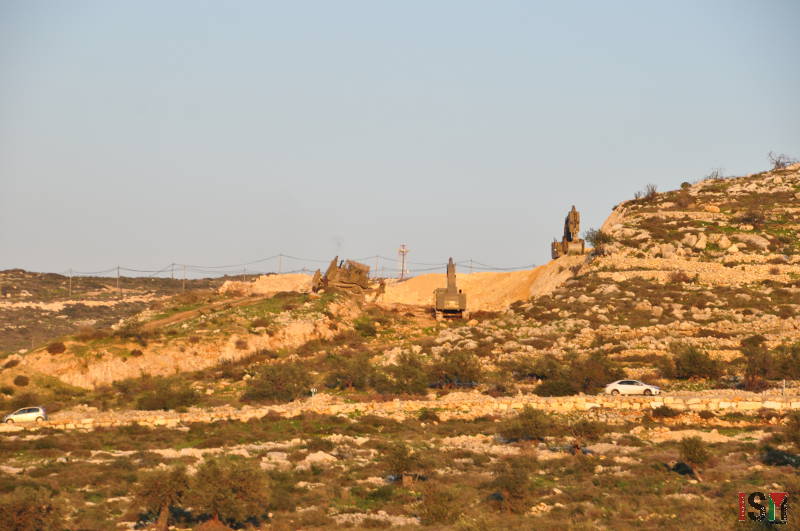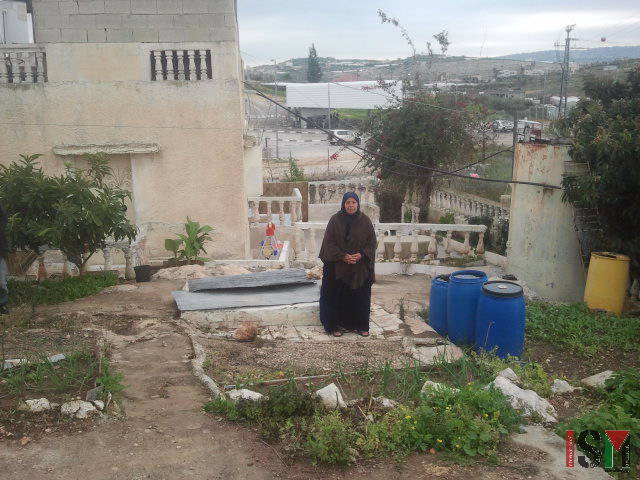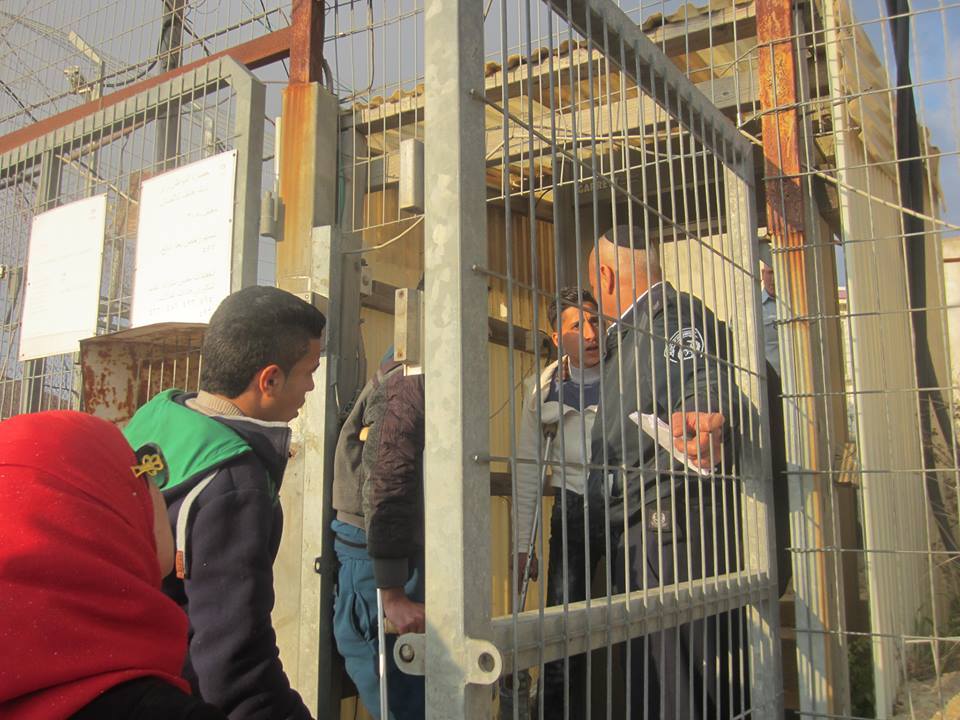-
Shufa village threatened as Israeli forces begin to excavate Palestinian land
4th January 2016 | International Solidarity Movement, Tulkarm Team | Shufa village, occupied Palestine On the 22nd of December, Israeli forces started excavating land belonging to the Palestinian village of Shufa. Residents fear the possibility of settlement expansion will threaten the future of their village. Shufa village is very close to Avne Hefez, an […]
-
63-year-old widow lives in an isolated home facing a checkpoint
January 4th 2015 | International Solidarity Movement, Tulkarem Team | Jubara, occupied Palestine In the outskirts of the village of Jubara, bordering the Jubara checkpoint, sits the home of 63-year-old, Shawqiye Hamaide, Umm Yousef. Mother of two daughters and grandmother of 6 children, Umm Youssef is originally from the village of Beit Lid, but moved […]
-
Palestinian families deeply concerned about the safety of their children
The three boys – Awne Abu Shamsiyye (16 years of age), Moataz Irfaiie (17 years of age) and Nizzar Salhab (16 years of age)- who were shot on their way home on the evening of the 1st of December have since then been harassed by Israeli forces and their families have been left in the […]
Action Alert An Nabi Saleh Apartheid Wall Arrests BDS Bethlehem Bil'in Cast Lead Demonstration Denial of Entry Ethnic Cleansing Farmers Gaza Global Actions Hebron House Demolition International law Israeli Army Jerusalem Live Ammunition Nablus Ni'lin Prisoner Ramallah Rubber-coated steel bullets Settlement Settlers Settler violence Tear-Gas Canister Video



